Skincare is an essential part of everyone’s daily routine, and it’s important to know what ingredients are in the products we use. From moisturizers to serums, there are a variety of ingredients that can benefit your skin in different ways. Some ingredients can help hydrate and nourish your skin, while others can target specific skin concerns such as acne or aging.
In this article, we’ll explore some of the most popular skincare ingredients to achieve healthy, glowing skin.
1. Brief Overview: Skincare Ingredient
Ancient Times
Where people used natural ingredients such as honey, olive oil, and aloe vera to moisturize and soothe their skin. Over time, advances in science and technology have led to the development of a wide range of synthetic and natural skincare ingredients that are used in various skincare products today.
20th Century
The use of synthetic ingredients in skincare products became popular, and new compounds such as salicylic acid and benzoyl peroxide were introduced to treat acne. Later, in the 1970s, retinoids were discovered to have anti-aging properties, and they became a popular ingredient in many anti-aging skincare products.
Today
The skincare industry continues to evolve, with new ingredients and formulations constantly being developed to improve the health and appearance of the skin. Many of these ingredients are derived from natural sources, and there is a growing interest in clean and sustainable beauty products that use eco-friendly ingredients.
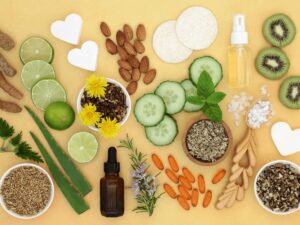
2. Skincare Ingredients and What They Do
Active skincare ingredients can provide various benefits to the skin, and protection and reducing inflammation.
Anti Aging
Anti-aging skincare ingredients can help reduce the signs of aging on the skin, such as fine lines, wrinkles, and age spots. They can increase collagen production, improve skin texture, hydrate, brighten, and provide antioxidant protection to the skin, preventing premature aging. These benefits help to improve the overall appearance and health of the skin, resulting in a more youthful and radiant complexion.

Hydrating
Hydrating skincare ingredients can help to moisturize the skin, providing a range of benefits for the skin’s appearance and overall health.

Acne
Skincare ingredients for acne can help to reduce and prevent breakouts, soothe inflammation, and improve the overall health and appearance of the skin.
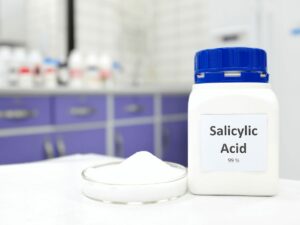
Anti Inflammatory
Anti-inflammatory skincare ingredients can help to soothe irritation and redness in the skin, while promoting a healthier, more radiant complexion.

3. Skincare Ingredients to Avoid
Are you tired of using skincare products that do more harm than good? It’s time to check the ingredients for your favorites. Some might seem harmless, but they could cause damage. Here are a few to avoid:
Fragrance
It is a common irritant that can cause redness, itching, and even breakouts. Opt for fragrance-free products, especially if you have sensitive skin.

Alcohol
It might give your skin a feeling of freshness, but it’s incredibly dry and can damage your skin’s natural barrier. Look for alcohol-free options or those with fatty alcohols like cetyl and stearyl alcohol.
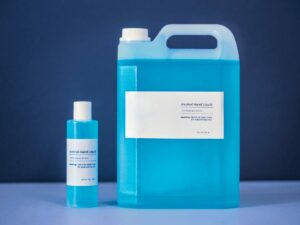
Sulfates
There are harsh detergents that can strip your skin of its natural oils and leave it feeling tight and dry. Choose sulfate-free options instead.

Parabens
Preservatives added to prevent bacteria growth, have been linked to hormonal imbalances and even cancer. Look for “paraben-free” products to keep your skin safe.
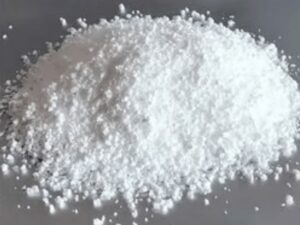
4. Common Skincare Ingredient Misconceptions
Common skincare ingredient misconceptions include the belief that nature is always better, that higher price means better quality, that oily skin doesn’t need moisturizer, that exfoliation should be done daily, and that all acids are harsh and damaging. It is important to understand these misconceptions to make informed decisions about skincare products.
Waterless Skincare
One skincare ingredient misconception is that waterless skincare products are always better, but this is not always the case. It’s important to consider each product on a case-by-case basis, as some waterless products may not be effective for all skin types, and some products without water can still provide effective hydration and nourishment.
Oil-free Emulsion
Another skincare ingredient misconception is that oil-free emulsions are always better for oily or acne-prone skin. However, not all oils are bad for the skin, and some oil-free emulsions may contain harsh or irritating ingredients.
Plant-Based Retinol
A skincare ingredient misconception is that plant-based retinol is a safer and more natural alternative to traditional retinol. While it can provide similar benefits, it has not been studied as extensively and may not be as effective for all skin types.
Hyaluronic Acid
A skincare ingredient misconception is that hyaluronic acid is a miracle ingredient that can instantly hydrate and plump the skin. However, its effectiveness depends on the specific product and individual skin type, and it may cause skin irritation for some people.
Rosehip Oil with Vitamin C
A skincare ingredient misconception is that rosehip oil with vitamin C is a miracle combination that can transform the skin and reduce the appearance of fine lines and wrinkles.
Alkaline Skincare
Another skincare ingredient misconception is that alkaline skincare is better for the skin than acidic skincare. However, the skin’s natural pH is slightly acidic, and using alkaline skincare products can disrupt the skin’s pH and cause skin irritation, dryness, and breakouts.
AHA Acids
A skincare ingredient misconception is that AHAs can thin out the skin over time. However, this is not true – AHAs can actually stimulate collagen production and improve skin thickness and texture. It’s important not to over-exfoliate with AHAs, as this can cause skin irritation and dryness.
Preservative-Free Cosmetics
Another skincare ingredient misconception is that preservative-free cosmetics are always better, but this is not true. Preservatives are necessary to prevent contamination and skin irritation.
Overall , while they can provide some benefits, it’s important to understand that they are not miracle ingredients, and their effectiveness depends on the specific product and individual skin type.
5. Skincare Ingredient Analysis
Skincare ingredient analysis refers to the process of examining the ingredients contained in a skincare product to determine their potential benefits or harmful effects on the skin. This analysis typically involves evaluating the safety, efficacy, and functionality of each ingredient.
Safety Analysis
This type of analysis evaluates the safety of skincare ingredients to ensure they do not cause any harm to the skin. Safety analysis may involve reviewing the results of toxicity tests, assessing the risks of skin irritation or allergic reactions, and evaluating any potential interactions with other skincare products or medications.
Efficacy Analysis
This type of analysis evaluates the effectiveness of skincare ingredients in achieving the intended skin benefits. Efficacy analysis may involve conducting clinical trials to determine the effectiveness of the ingredients in reducing wrinkles, increasing skin hydration, or improving skin texture, among other benefits.
Functionality Analysis
This type of analysis evaluates how well the ingredients work together to provide the intended benefits. Functionality analysis may involve reviewing the formulation of the skincare product to ensure the ingredients are delivered in a way that maximizes their effectiveness.
Compatibility Analysis
This type of analysis evaluates how the ingredients in a skincare product interact with each other and with other skincare products or medications. Compatibility analysis may involve reviewing the pH levels of the product, evaluating how the ingredients are absorbed into the skin, and assessing any potential interactions with other skincare products or medications.
Overall, the type of skincare ingredient analysis performed will depend on the specific goals of the analysis and the information needed to evaluate the safety and effectiveness of the skincare ingredients.
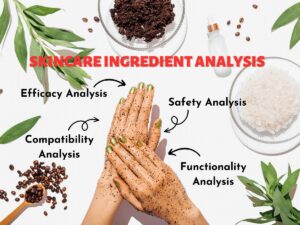
6. 5 Factors to Consider When Choosing Ingredients for Different Skin Types
Choosing the right ingredients for your skin type is important to ensure that you are using products that are beneficial and effective for your specific skin concerns. Here are some factors to consider when choosing ingredients for each skin type:
#1 Dry Skin
Look for ingredients that are rich in emollients, humectants, and occlusives. Emollients help to soften and smooth the skin, humectants help to retain moisture, and occlusives create a barrier to prevent water loss. Examples of ingredients to look for include hyaluronic acid, glycerin, shea butter, ceramides, and squalane.
#2 Oily Skin
Look for ingredients that help to control oil production and reduce the appearance of pores. Ingredients such as salicylic acid, benzoyl peroxide, tea tree oil, and witch hazel are effective in controlling oil production and reducing the appearance of pores.
#3 Combination Skin
Look for ingredients that balance oil production and provide hydration to dry areas. Ingredients such as niacinamide, aloe vera, and rosehip oil are effective in balancing the skin and providing hydration where needed.
#4 Sensitive Skin
Look for ingredients that are gentle and non-irritating. Ingredients such as chamomile, aloe vera, oatmeal, and calendula are soothing and gentle on sensitive skin.
#5 Aging Skin
Look for ingredients that help to stimulate collagen production and reduce the appearance of fine lines and wrinkles. Ingredients such as retinol, vitamin C, peptides, and hyaluronic acid are effective in promoting a youthful, radiant complexion.
It’s important to remember that everyone’s skin is unique, so it’s essential to pay attention to how your skin reacts to different ingredients and adjust your routine as needed. It’s also a good idea to consult with a dermatologist or skincare professional to help you choose the best products for your skin type.
| Factors to Consider When Choosing Ingredients for Different Skin Types |
| Skin Type |
Factors to Consider |
Examples of Beneficial Ingredients |
| Dry Skin |
Rich in emollients, humectants, and occlusives |
Hyaluronic acid, glycerin, shea butter, ceramides, squalane |
| Oily Skin |
Helps to control oil production and reduce the appearance of pores |
Salicylic acid, benzoyl peroxide, tea tree oil, witch hazel |
| Combination Skin |
Gentle and non-irritating |
Chamomile, aloe vera, oatmeal, calendula |
| Sensitive Skin |
Stimulates collagen production and reduces appearance of fine lines and wrinkles |
Retinol, vitamin C, peptides, hyaluronic acid |
| Aging Skin |
Stimulates collagen production and reduces appearance of fine lines and wrinkles |
Retinol, vitamin C, peptides, hyaluronic acid |
Note: Always consider that these are just basic principles, monitor how your skin reacts to various ingredients and make changes as necessary, and seek advice from a skincare professional or dermatologist for the best product recommendations for your skin type.
Dive Deeper Into Our Resources
Looking for more diverse product options? Browse through our handpicked selections:
Still haven’t found what you’re looking for? Don’t hesitate to contact us. We’re available around the clock to assist you.
7. Conclusion
Skincare ingredients play a crucial role in determining the effectiveness of skincare products. The right combination of ingredients can provide numerous benefits, including hydration, anti-aging, and protection from harmful environmental factors.
If you’re interested in learning more about skincare ingredients and have any questions or concerns, feel free to contact us at Nako Cosmetic. We’ll do our best to provide you with helpful and informative answers to your skincare ingredient questions.









